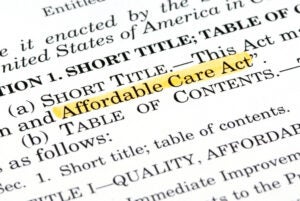Dental Coverage under the ACA: Marketplace Rule Would Give States the Opportunity to Expand Coverage

Dental care is an important element of comprehensive health care. The Affordable Care Act (ACA) requires coverage of pediatric dental services in many commercial plans, but the law has had less of an impact on adult dental coverage. This first blog in a new series on dental coverage in the ACA Marketplaces summarizes the legal framework of dental coverage and potentially forthcoming changes under the proposed Notice of Benefit and Payment Parameters for 2025.






